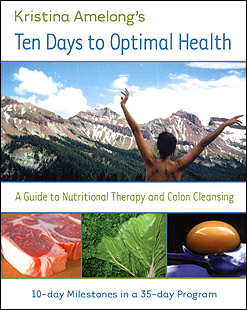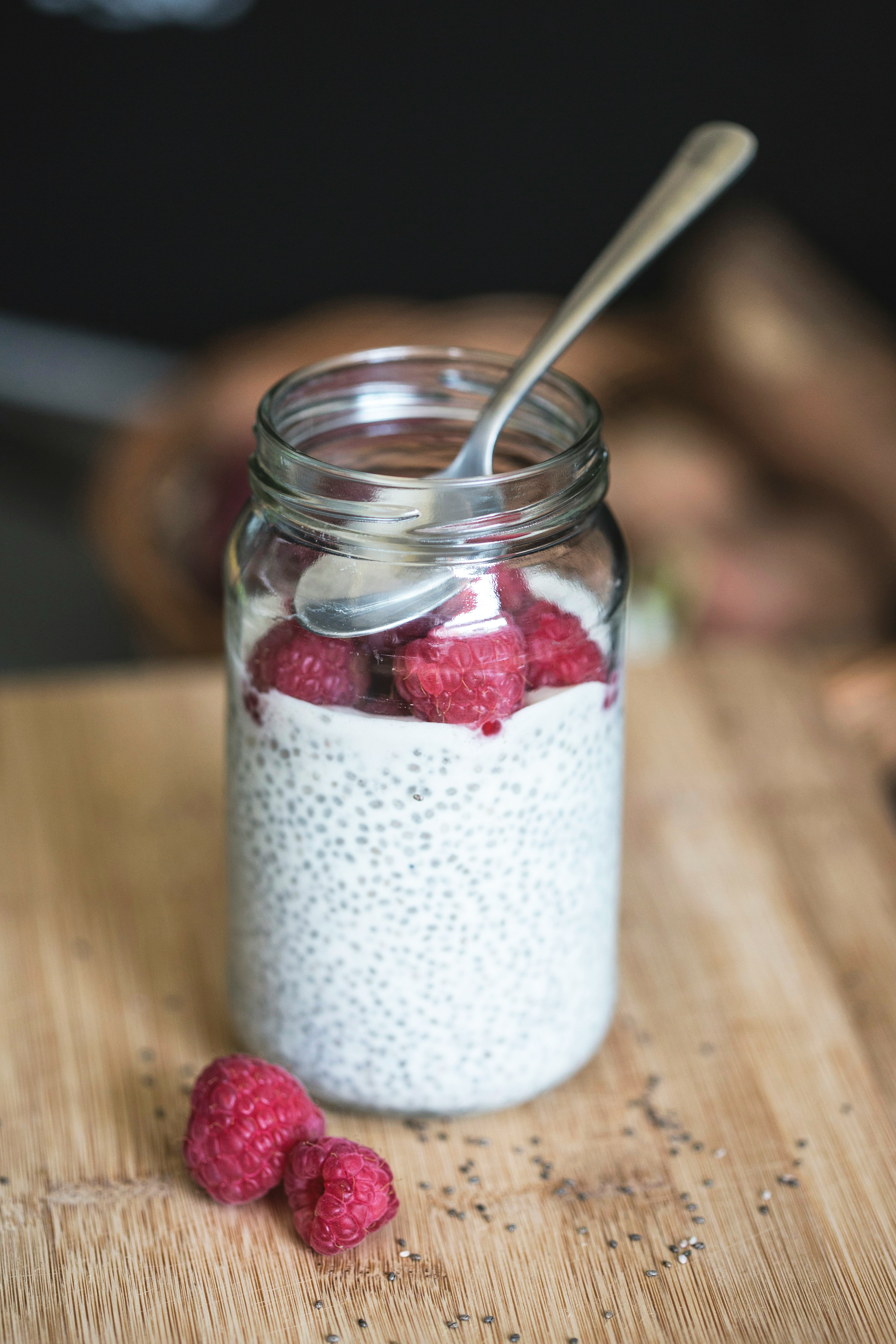How To Reduce Inflammation and Reset Your Relationship to Sugar and Carbs
General Recommendations for a Carbohydrate Reset
Important Considerations
How To Think about What To Eat
Introduction
One of the most important things to think about within the topic of food and diet is carbohydrate intake. Carbs are essential nutrients for the human body, but the standard American diet is far too carb-heavy for optimal health. Carbohydrates turn into sugars in the body, so consuming them in large quantities and without enough protein to help digest them can cause inflammation and many problems for blood sugar management and immune system health.

If you struggle with any of the following, you may want to consider a total carbohydrate reset.
- Sugar or junk food cravings
- Excess weight or weight gain
- Insulin resistance
- Diabetes
- Candida overgrowth
- Gut/microbiome health
- Irritable bowel syndrome (IBS), Crohn's disease, constipation, other digestive issues
- Skin health
- Polycystic ovary syndrome (PCOS)
- Chronic pain
- Arthritis
- Cancer
- Lyme disease
- Irregular blood sugar or glucose levels
- Hormonal dysfunction
- Any other disease or condition caused by chronic inflammation

Common Low-Carb Diets
There are many diets out there that have very different takes on restricting carbs. For example...
- The keto (ketogenic) diet recommends 20-50 grams of carbs daily. (Note: the keto diet talks about net carbs, which requires subtracting grams of fiber and sugar alcohols from total carbs. I don't find this method of calculating carb intake useful. More about my methods below.)
- The carnivore diet from Paul Saladino (now called the animal-based diet) recommends 0.5-1 gram of carbs per pound of goal body weight daily.
- The paleo diet does not emphasize cutting carbs explicitly, but ends up cutting out many high-carb foods.
- The Atkins diet starts with 20 grams of carbs daily and gradually increasing carb intake as goal weight is reached.
Most of these diets are entirely focused on weight loss, and while that can be a reason to limit carbs, there are so many other health benefits that can be gained from thoughtfully and therapeutically limiting carbohydrates.
One other diet I would like to mention is the Candida diet, which reports to have helped many people fight Candida (yeast) overgrowth in the body. It doesn't have a specific carb limit; rather it focuses on cutting all sugar and cutting some starchy vegetables and high-sugar fruits. I would argue that my method outlined below is a more effective way for most people to starve the Candida, as it is a more extreme version of the Candida diet.

General Recommendations
In over 20 years of working with thousands of clients, I've found that there isn't one best diet that will work for everyone, although my 10-Day Diet for Optimal Health is a great place to start. However, for the many, many people struggling with their relationship with sugar — blood sugar regulation, inflammation in the body, sugar cravings, and overconsumption — merely following my 10-day diet isn't enough. What those people need is a dramatic reduction in carbohydrate consumption for a defined time period. This can look different for everyone, but here are my general recommendations:
▶︎ Consume 40-80 grams of carbs (shoot for around 60) daily for a minimum of 3 months.
▶︎ Eat as much food in the following categories as you want:
- Animal protein: meat, raw dairy, eggs
- Animal and other healthy fats such as coconut oil and avocados
- Non-starchy vegetables
▶︎ Avoid these categories entirely:
- High-carb sweeteners: sugar, maple syrup, honey, molasses, agave, etc. (more on low-carb sweeteners below)
- Gluten
- Alcohol
▶︎ Keep to 40-80 grams daily, ideally less than 20 grams per meal, of the following. (For many people, it can be helpful to fully rule out one or more category entirely to simplify. For example: no grains or legumes for 3 months.)
- Grains: rice, quinoa, oats, corn meal, etc.
- Legumes, nuts and seeds: beans, lentils, chickpeas, nut butter, etc.
- Starchy vegetables: potatoes, squash, corn, beets, carrots, etc.
- Fruit: all fruit is fairly high-carb, some is lower (more below)

Important Considerations
- Think of this as a reset with your relationship to carbs and sugars. You don't have to eat this way forever. Three months is a good place to start, though some people may need 4-6 months. Eventually you can experiment with gradually incorporating more grains, fruits, legumes, etc. You may find when you do this that it's hard to maintain balance and you swing back into overeating carbs, in which case you can course-correct and go back to limiting carbs again.
- My general recommendation for anyone looking to regulate blood sugar is to eat every 2 to 2.5 hours throughout the day, ensuring that each meal has some protein. More information about this method can be found here. It may not be what works best for your lifestyle or body, but I would still shoot for eating 4-5 smaller meals rather than 3 main meals each day, if you can.
- Bottom line: If you are hungry, eat! Don't put it off. Hunger is your body's way of signaling you so that you can regulate your blood sugar. Similarly, if you are craving sugar, carbs, etc., you are probably just hungry. (Maybe thirsty as well. Stay hydrated!)
- Preparation is key. Have the food you need on hand such that you can eat whenever you are hungry, and have good options to replace the foods that you might crave. If you know you are going to be around other people who will be eating foods you want but have decided not to eat, make sure to bring your own low-carb options.
- You need to find a way to do this that works best for you. For some people that means writing down every gram of carbohydrate consumed throughout the day. For others, it might look like completely avoiding all grains and legumes and eating a small, measured amount of fruit and starchy vegetables every day. By cutting out most high-carb foods entirely, you can ignore the work of calculating/estimating. Some people who do this may end up consuming much fewer carbs, like 20-40 grams daily, which is perfectly fine. If you are someone who has a food vice that you absolutely can't let go of (maybe you need a slice of gluten-free toast every day or can't live without peanut butter), you can determine what amount of your favorite addiction you can eat and cut the necessary carbs from the rest of your meals to accommodate.
- You do not need to be perfect! It may happen that, despite all your preparations, you run out of time and have to get takeout for dinner. Ideally, you'll be able to choose an option that still fits with your goals, but you might accidentally order a Thai curry whose sauce clearly has added sweetener. My advice is to cut yourself a break, minimize the damage (eat a lot of protein to compensate for the extra sugar) and recommit to your protocol and meal prep the next day.

How To Think about What To Eat
- I do not consider non-starchy vegetables (leafy greens, broccoli, cauliflower, peppers, peas, green beans, etc.) in the total carb calculation, even though they do contain some carbs. Eat as many of them as you want.
- Healthy fats and protein are going to be your best friends. Most of us are used to relying on carbohydrates to feel full and energized, but fats and proteins play those roles as well. You should eat some fat and some protein with every meal, and as long as what you are eating is low-carb, don't be afraid to really fill up on it! No calorie counting is necessary! And feel free to add liberal amounts of coconut oil, ghee, avocado oil, or olive oil to your cooking. I would aim for a minimum of 10-20 grams of protein per meal, depending on how many meals you eat.
- In that vein, keep protein-rich snacks on hand such as meat sticks/jerky, raw cheese, hard boiled eggs, cans of sardines, etc.
- There are many products for sale that claim to be keto-friendly. Some of these can be very helpful, such as tortillas made from only egg (to replace high-carb corn tortillas) or grain-free keto crackers made from cauliflower. Many products, however, are loaded with artificial ingredients and dairy, which can cause other health issues. Be very discerning with what you consume.
- Similarly, there are many keto recipes out there that can help you think about cooking very low-carb. If you have ingredients or an idea of what you want to make, you can search for it and add "keto" or "low-carb" to the search and should get many results.
- Prioritize lower-carb fruits — strawberries, watermelon, cantaloupe, peaches, raspberries, blueberries — over higher-carb fruits like bananas, mangoes, and apples.
- You can always do a quick online search to find the general carb count for items such as a banana, a cup of rice, etc.
- A note on low-carb sweeteners: There are a lot of low- and no-carb sweeteners found in keto products or for use in baking. I don't have much personal experience with things such as monk fruit and xylitol, but I think they, as well as stevia, are okay if used in moderation. What you don't want to do is to transfer your sugar addiction to an addiction to sugar replacements. I would always steer clear of things such as NutraSweet (aspartame), etc. As much as you can make peace, for the next 3 months, with everything you eat being much less sweet, that will become the new norm such that ideally, a strawberry will taste like candy to your body.
Dealing with Cravings
When you are craving a high-carb food, the best replacement is a nourishing, high-protein, and fat-rich meal — anything you enjoy. However, sometimes you may need alternatives. Here are some ideas:
High-Carb Food |
Low-Carb Alternative |
Soda, alcohol, fruit juice |
Seltzer, tea, coconut water, kombucha |
Popcorn, potato chips, other snack foods |
Meat snacks, kale chips, nuts as a last resort |
Dessert (cake, ice cream, etc) |
Fruit, chia pudding (recipe below), other keto recipes |
Bread, crackers, potatoes, tortillas |
Keto products like Egglife tortillas, Simple Mills almond-based crackers (in moderation), cauliflower-based products (cauliflower rice, pasta, crackers, or mashed "potatoes") |

Supplements To Help Regulate Blood Sugar and Curb Carb Cravings
- Standard Process Gymnema is an herbal tonic that reduces sugar cravings and can help regulate blood sugar. It actively makes sweet things taste less good. Take 1 tablet twice daily for the entire duration of this 3-month carb reset (and beyond).
- Ortho Diaxinol is a cutting-edge cardiovascular supplement combining well-studied natural ingredients and appropriate dosages for those seeking to maintain balanced blood sugar levels.
- Magnesium is the number one mineral that Americans are deficient in. Low magnesium is associated with diabetes among other blood sugar related issues, due to the fact that the body uses magnesium to break down sugars and employ insulin. It has been shown that taking 300 mg of magnesium at bedtime can help with insulin resistance and blood glucose levels. Start by taking 2 daily at bedtime; feel free to increase as needed.
- Vitamin D3 with K2 is a key supplement to address so many different issues, including blood sugar regulation. This study shows the important role vitamin D plays in glucose metabolism.
- Omega-3 fatty acids are cornerstones of nutrition, and many people do not get enough of them through diet alone. Taking an omega-3 fish oil supplement daily can help reduce inflammation and regulate blood sugar.

Don't Ignore the Feelings!
Because we all have so many emotional connections with food, anytime we make big changes in what we are eating, feelings are sure to arise. It's important not to ignore or avoid dealing with these emotions, as any avoidance will eventually sabotage your healing plans.
Be gentle with yourself and try to set up systems of support for this time, as well as developing new habits and coping mechanisms other than sugar or carbs. For example, you may have been used to a specific sweet bedtime snack that helped you feel comfort every night. Think about whether you can replace that high-carb snack with something low-carb, high-fat, and protein-rich (chia pudding with strawberries or an avocado and coconut milk based smoothie could be good options). Or think about replacing that ritual with another kind of treat — reading a chapter of your favorite book, calling a friend, having a solo dance party, etc.
For more guidance on supporting yourself emotionally and leaning into feeling your feelings, check out this article.
A Note to Vegetarians
It will be quite difficult to consume as much protein as you need to feel full and energized while eating so few carbs if you are a strict vegetarian. If you are committed to veganism, this diet will not be possible, but if you are willing to incorporate eggs, fish, and/or raw dairy, you may be able to make it work. While I respect the moral stance taken by vegetarians around their food choices, I urge you to consider putting your own health first, even just for this 3-month reset, and incorporating small (or large) amounts of meat into your diet.
A Note on Diabetes
This diet is a good place to start for many conditions, including diabetes. Here is a recent testimonial from a diabetic client who followed this protocol:
"Blood sugar levels are 80 to 110. Today I weigh 179 lbs. I have backed off from taking the fast-acting insulin by 75%. Thanks, Doc, for all your wonderful help." ~ Clyde
Some have found that shifting their relationship with carbohydrates helped them get completely off of insulin or other drugs for type 2 diabetes such as Trulicity, though this won't be the case for everyone. As with any serious condition, you should always consult a doctor. For more information on our recommended protocols for diabetes support, see this article.
For individualized diet and nutrition support, or for added emotional resource as you take on these big changes, consider working with me in a one-to-one capacity (see below).
DISCLAIMER: This material is presented for informational purposes only and is not a substitute for medical advice, diagnosis, or prescribing from a licensed healthcare professional. We make no claim or guarantee for cure or relief of any specific symptom, medical condition, or disease when using any of the products or protocols referenced here. Consult with a licensed healthcare professional before altering or discontinuing any current medications, treatment, or care, or starting any diet, exercise, cleansing, or supplementation program, or if you have or suspect you might have a health condition that requires medical attention.
By Kristina Amelong, CCT, CNC
I-ACT-Certified Colon Hydrotherapist
Certified Nutritional Consultant

▶︎ Need more detailed guidance on optimizing your diet?
Personal Health Consultations with
Kristina Amelong, CCT, CNC
For personalized support with your home health program, I would be happy to assist via a scheduled phone consultation. I charge an affordable $2.25 per minute, for as many or as few minutes as you need!
First complete any relevant sections of my secure online intake form. Upon submitting the form, you will be prompted to schedule a consultation time with me via my online booking system.
If you are an international client who would like to use WhatsApp for your scheduled consultation, you can find me on the app at +1 608-242-0200.
|
|
|